Disentangling a Cedar Key Dolphin
On Aug. 9, 2023, the SDRP partnered with University of Florida Marine Animal Rescue (UFMAR) and the Cedar Key Dolphin Project (CKDP) to help disentangle an estimated 5-month-old dolphin calf, also known as DTNL, that had plastic mesh wrapped around and cutting into its torso and pectoral flippers. The entanglement was first reported to UFMAR on July 18. The mother has been observed in the area by CKDP since 2008, and she was first seen with this new calf on June 2, 2023.
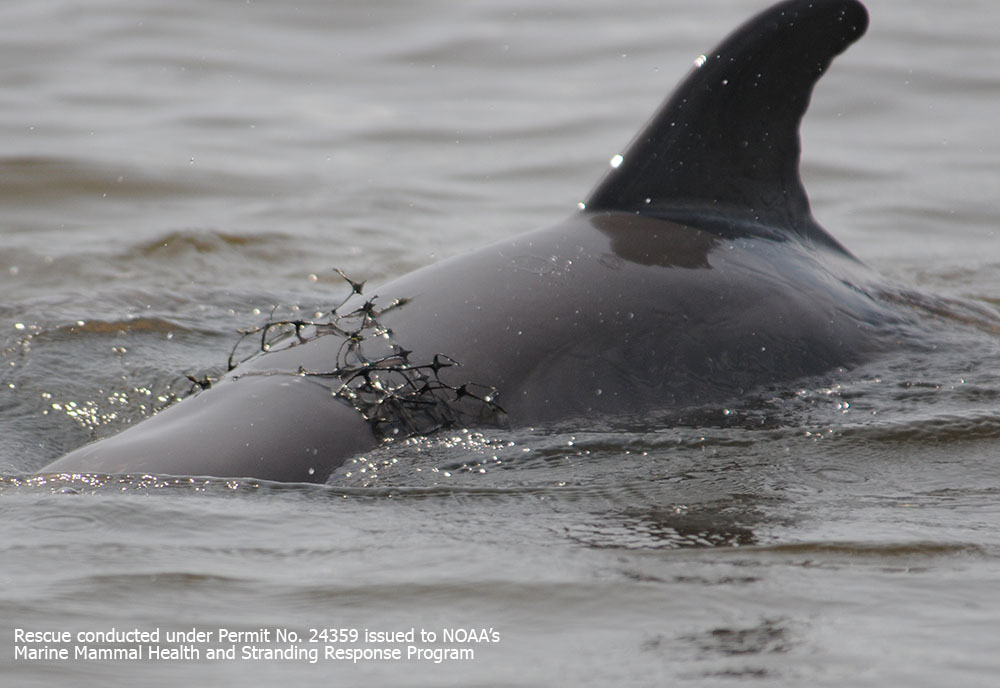
Around 9:30 a.m., SDRP staff members Aaron Barleycorn and Jason Allen joined the UFMAR team on their boat and began looking for the animals, while SDRP’s Jonathan Crossman joined the team from CKDP. More than three hours later, the CKDP team found the pair with five other dolphins near Dog Island.
The SDRP team was prepared to attempt the remote disentanglement using a 4m-long, adjustable-length pole fitted with a detachable treble grapple with protected tips. Water clarity was poor and the dolphin was doing typical quick young-baby surfacings for air, but the pair didn’t seem to mind the boat.
Not long after the team spotted the group, the dolphins stopped to socialize and mill near Lil Shark Park on Cedar Key, which made predicting their surfacing much more difficult. Eventually, the mom, known as NLCT, surfaced off the port side of the boat, with DTNL surfacing next to mom and close to the boat, allowing us to make an attempt at remote disentanglement.
DTNL dove so contact with the calf or mesh couldn’t be confirmed visually through the murky water, but when the dolphin surfaced, there was no longer any mesh visible on its back. Drone footage suggested that the animal was free of gear. UFMAR and CKDP will continue to monitor DTNL to confirm it is completely free of gear, and to track the healing process.
This remote disentanglement was conducted at the request of NOAA, the federal agency responsible for overseeing the stewardship of marine mammals in U.S. waters, under Permit No. 24359 issued to NOAA’s Marine Mammal Health and Stranding Response Program, part of of NOAA’s National Marine Fisheries Service.
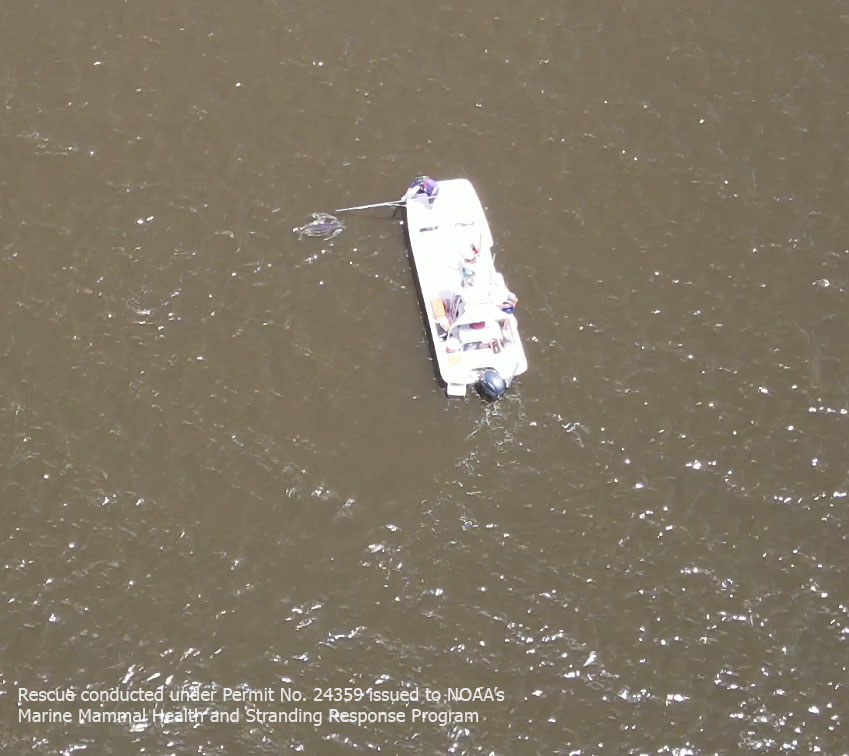
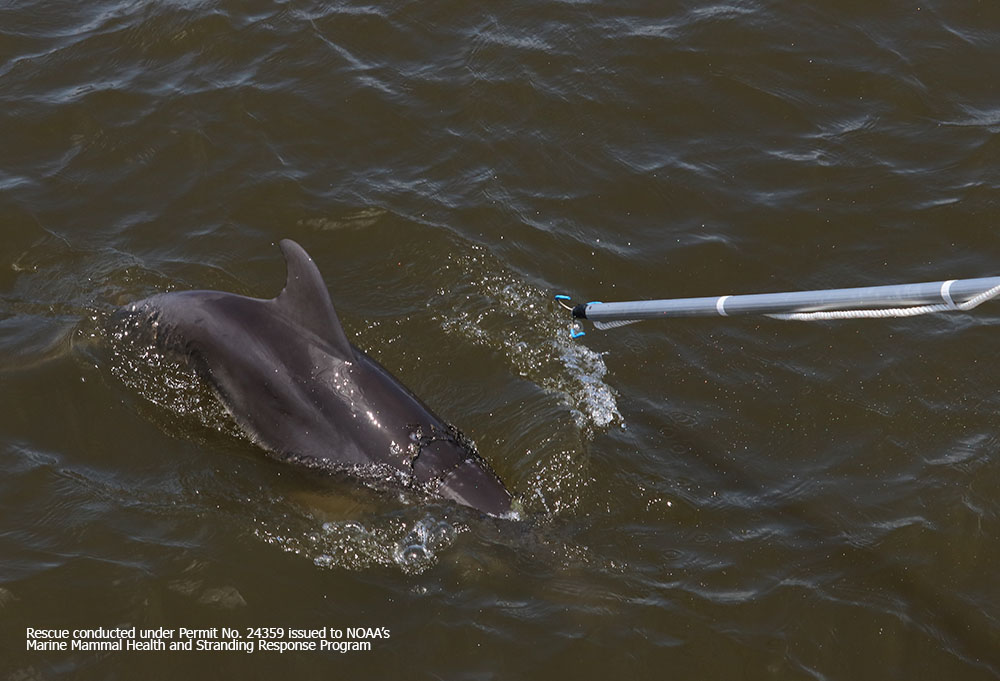
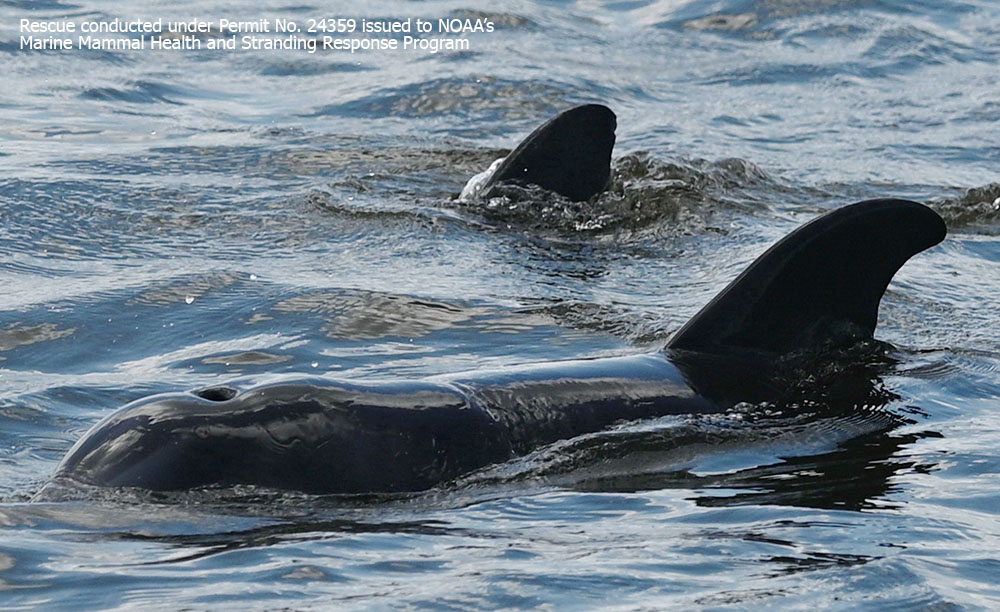
Image Captions
Top: This image shows the plastic mesh entangling dolphin DTNL, a 5-month-old calf located near Cedar Key, Florida.
Middle left: Drone image of crew disentangling DTNL.
Middle right: Close-up image of disentanglement.
Bottom: Calf DTNL free of entangling mesh.


